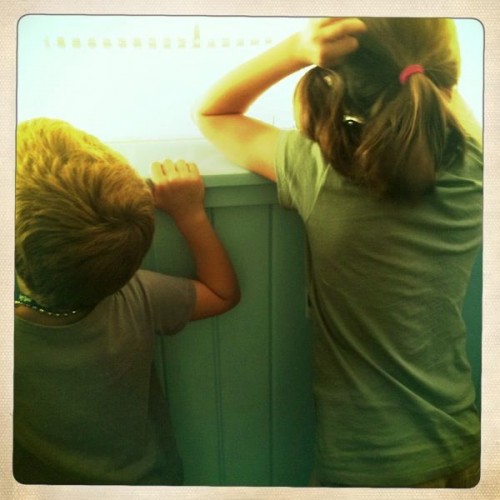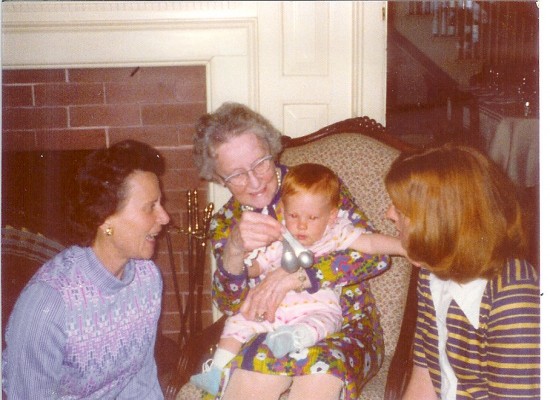It is finally summer. A few images of the last several days:
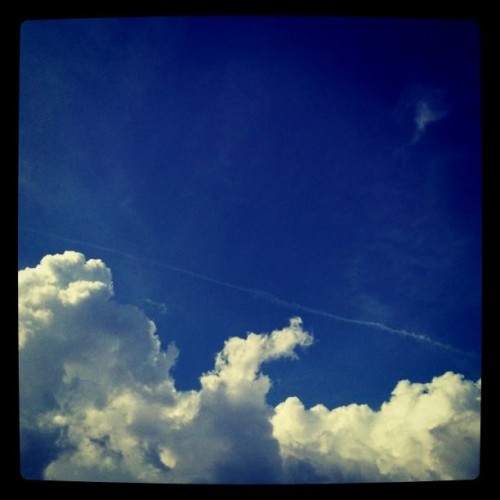
Crazy gorgeous blue sky. I love the faint tracing of an airplane’s straight line juxtaposed with the puffy clouds. A reminder of all that is linear and all that is utterly non-linear.
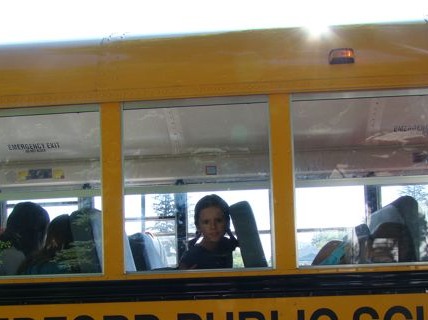 Grace on the camp bus.
Grace on the camp bus.
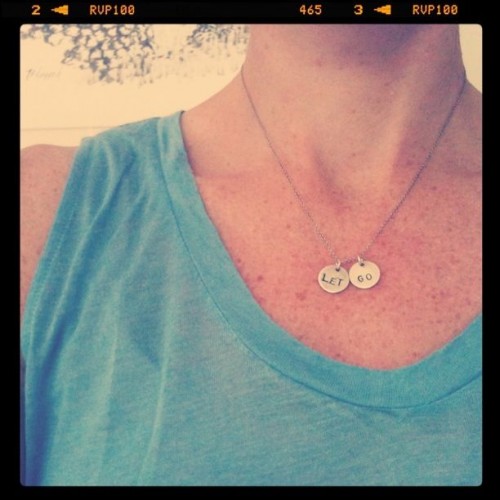
Continuing to try to let go. Lately have been thinking of how it’s futile to try to surrender. Ridiculous to effort to let go. Trying to parse that one.
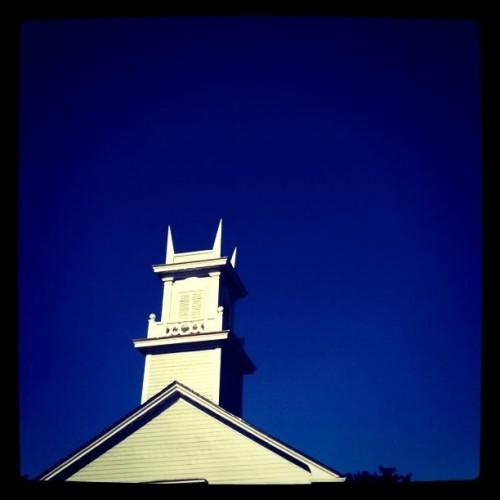 The steeple of the art center on the corner against a blue sky is one of my very favorite views.
The steeple of the art center on the corner against a blue sky is one of my very favorite views.
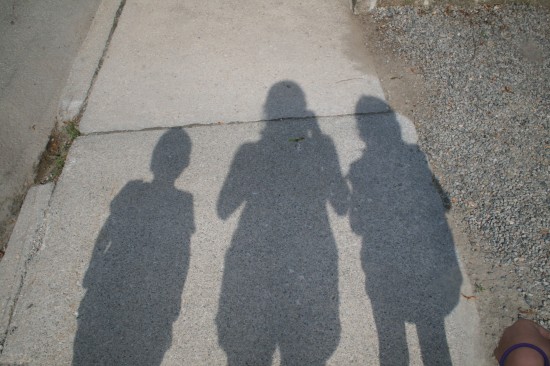
Walking back from the school bus in the slanting late-afternoon sunlight.
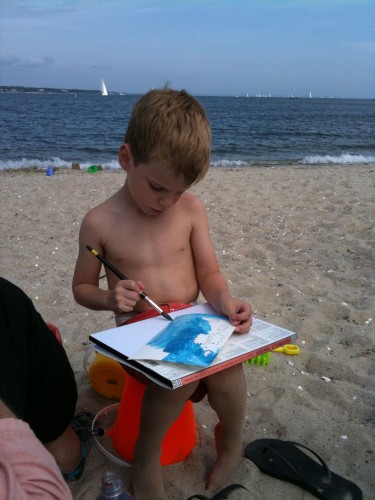 My Renaissance man painting on the beach (under the wonderful tutelage of Sally, one of the Four Family mothers)
My Renaissance man painting on the beach (under the wonderful tutelage of Sally, one of the Four Family mothers)
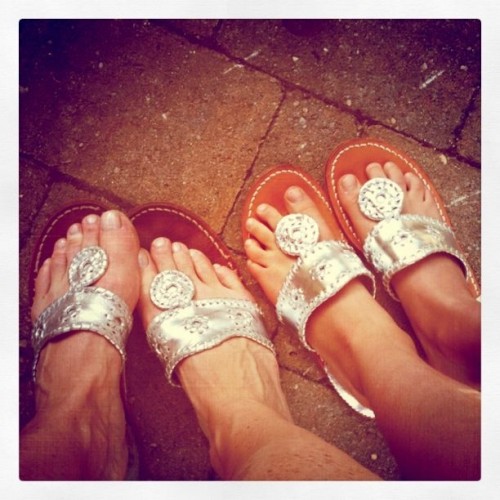
Matching shoes for dinner out at a local restaurant.
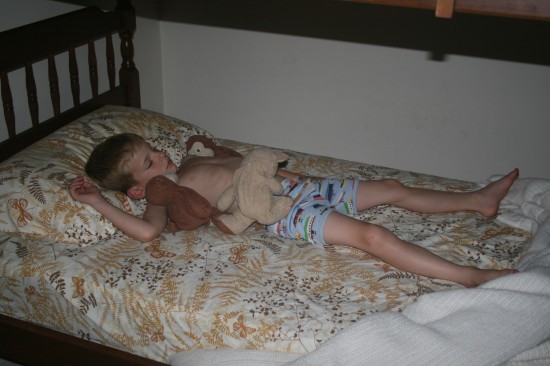
Sound sleep, in a hot room with animals nearby.

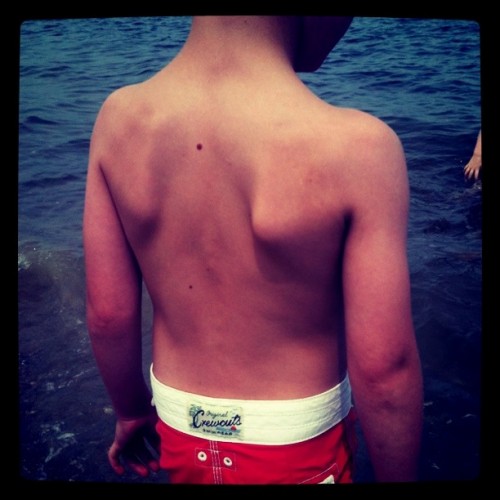 I always think of their shoulder blades as wings. Their wings, poking through their skin. And his little back has two freckles on it now, marks marring his white, skim-milk skin, my skin. Life beginning to make its mark on my child.
I always think of their shoulder blades as wings. Their wings, poking through their skin. And his little back has two freckles on it now, marks marring his white, skim-milk skin, my skin. Life beginning to make its mark on my child.